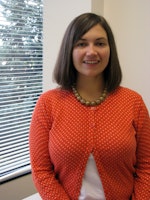Ross Schofield works hard to keep his shop, Marathon Automotive, right out there on the edge.
He says the shop is on the cutting edge of technology and on the cutting edge of marketing, but firmly on the customers’ minds. So much, in fact, that customers often stop by the Traverse City, Mich., shop for a cup of its signature coffee even when their vehicles don’t need maintenance or repairs.
“That makes us feel really good that they stopped in and got a cup of coffee and said hi,” says Schofield, owner of the shop that made the top 10 of the fourth annual Motor Age Top Shops Contest.
Getting the customers comfortable enough to stop in when work is not needed is a byproduct of Schofield’s customer philosophy. He says he works hard to ensure his entire staff makes the customers feel like they would want to be treated. In fact, when he recently asked customers for testimonials for the shop’s Web site, he received one reply he didn’t expect.
“As one customer said, ‘I consider these guys my friends. Though I may not go out to dinner with them and I may not do other things, when I come in I really feel like they’re my friends,’” Schofield recalls. “We try to make it inclusive.”
Inclusive barely begins to describe the myriad of activities pushed through to Marathon’s customers and employees.
Training in Basket Weaving
Training is offered in a variety of forms for Marathon Automotive employees and is encouraged by the ownership. Schofield says he tries to foster a learning environment within the shop and pays 100 percent of shop training.
Actually, the shop also pays for 50 percent of any other training.
“If you’re not growing, you’re dying, so you need to be doing something to further yourself, and I don’t care what it is,” Schofield says. “You can do yoga, you can do basket weaving, you can do statistics. Whatever your interests are in, I encourage people to do training as well as (in that). I love to see them do training for the business, but sometimes you need to do something different in your life.”
The technicians are open to this, but do keep their noses to the automotive grindstone, which can be seen looking at their backgrounds. Schofield adds that he hires only the top techs. He once purchased a list of 15,000 Master Technicians from the state of Michigan and mailed each a brochure on the shop just to find the right technician for an opening.
PAGE 2That dedication to learning and bringing in those like him also drove Schofield to be instrumental in saving the automotive program at Northwestern Michigan College in Traverse City. He was part of a 15-person board who stepped up, found a new location for the program and got it back on its feet.
The program is so popular now, it’s one of the largest at the school and is home to General Motors and Ford factory training.
Training and Technology
And of course, training would be for naught if there wasn’t new technology with which to utilize those new skills. The technology wave started for Schofield in 1981 when he bought his first computer.
“We’ve always been on the leading edge of technology. I don't think it’s unique to us, but because people are kind of geeky with cars, they’re kind of geeky with computers,” he muses.
When they moved their shop in 1992, Schofield decided to put in a network, including dial-up Internet access. “We have about 20 computers in the shop, and they’re all networked.” They started with DSL line in mid- to late-1990s and later switched to cable.
“I’ve been a firm believer in not spending to excess but certainly giving the technicians the best technology and tools available," he says. "And it really helps with their attitude, because if you show them you care that they have the best, that certainly shows in their work and goes back to the customer."
Schofield implements these ideas through diagnostics, by having his techs use numerous factory scan tools with programming subscriptions, as well as Toyota and European vehicle software packages.
Parts go hand-in-hand with that technology, and the shop stocks most parts for common jobs. However, the shop owner points out that the shop has developed good relationships with suppliers and dealers around the country in an aim for next-day delivery of parts. These relationships have allowed Marathon to negotiate deep volume discounts and maintain consistency in both quality and parts availability to keep up with the changing technology.
Actually, the one place where technology isn’t located is in the customer waiting area. “It’s not a typical waiting area,” Schofield notes. “It’s pretty quiet up there. I don’t have a TV screaming at them. My customers sit up there and actually have real conversations.”
Constant Communication
Those conversations could revolve around the shop's aforementioned signature coffee or preventive maintenance inspections.
Each January, Schofield sends out postcards for $30 preventive maintenance inspections to fill the slots in the shop’s slowest time, January through March. These cards count for about half of the workflow from mid-February to April. People will come back for repair work after they have the preventive maintenance check and can spend time to set aside money and time for the service.
Overall, the communication among the staff and with customers keeps the shop out there in the community.
“I think the business is the people and the culture. And I think the business owner needs to guide the business and cultivate the culture of the employees and find people who work well together and likes each other. Everybody here genuinely likes the people they work with,” Schofield says.
Customers pick up on that and continue to see the efforts the shop is making, keeping itself on the cutting edge in any way possible.



